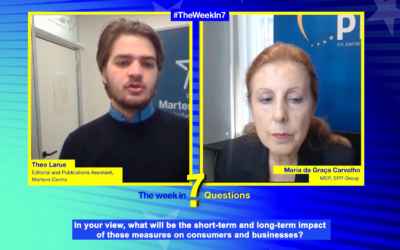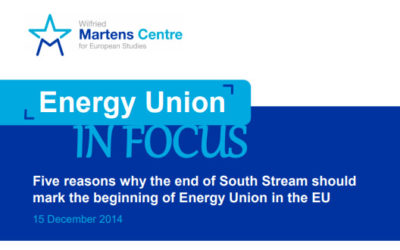Unresolved problems continue to haunt you no matter how hard you try to ignore them. Germany is painfully reminded of this after yet another turn in the never-ending Nord Stream 2 saga. The horrid poisoning of Russian opposition activist Alexei Navalny has put pressure on the German government (both at home and internationally) to rethink its commitment to the pipeline project, should the Kremlin refuse to cooperate in the investigation. There is little chance for Berlin to unilaterally cancel such a large infrastructure project, which is nearing completion. Any diplomatic hints that it might do so may be a well-calibrated attempt to test Vladimir Putin’s resolve. However, one thing is certain – the latest developments have shown again that the Gazprom-led pipeline is nothing more than a political project with grave implications for Europe’s energy security and uncertain economic gains.
For several years, the construction of Nord Stream 2 (NS 2) irked different European capitals and put a strain on Washington and Berlin’s relationship. The project is planned to double the volume of the existing Nord Stream 1 pipeline, with the total volume of both ventures being a maximum of 110 billion cubic meters of natural gas per year. Gazprom has pledged to guarantee 50% of the project funding and will be the sole shareholder in the project, which is backed by five other European companies. Although technically a private corporation, Gazprom remains owned by the Russian government and is used as an important tool in advancing the Kremlin’s economic and geopolitical interests outside Russia’s borders. The new extension of the pipeline will fortify the Russian Federation as the EU’s top supplier of natural gas – a position Moscow has exploited in the past through unfair price setting and partitioning gas markets in Central, Eastern, and Baltic EU member states. Regrettably, if the pipeline becomes operational, it will go against one of the European Energy Union’s main objectives – diversification of energy suppliers and reduced dependence on only a handful of third-country exporters.
Several European leaders have already objected to the project and its destabilising geopolitical consequences for energy security in Central and Eastern Europe, as well as its clear attempt to circumvent Ukraine as a transit country for natural gas to Europe. A recent European Parliament resolution, adopted with an overwhelming majority, called for the official halt of the project. There is little rationale for such costly infrastructure, given that it will not transport new volumes of gas, but will instead redistribute existing quantities flowing through Ukraine. The European Union has an abundance of existing gas infrastructure and has pledged to reduce fossil fuel dependence in the coming decades. There is a real possibility that NS 2 would become a stranded asset buried below the Baltic Sea in the near future.
For the time being, Gazprom looks set to complete the project, albeit with a significant delay due to regulatory hurdles and changes in the applicable European legislation. Irrespective of Russia’s military aggression in Crimea, foreign interference in elections, and energy blackmail of smaller EU-member states, it seems as if it will be business as usual for Germany when it comes to pipelines. There are at least two main reasons for Berlin’s dogged determination to see the project completed. First, Germany’s pledge to phase out nuclear energy by 2022 and reduce its reliance on coal means that households and industry will register a growing demand for natural gas as a transitionary resource throughout the 2020s. Second, the country is still path dependent on the dubious legacy of the German Social Democratic Party (SPD), and its steadfast belief in a ‘modernisation partnership’, meaning a warmer attitude towards Russia. Prominent political figures from the SPD in the last two decades have committed Germany to the whole Nord Stream energy venture, regardless of the split it causes between Eastern and Western EU member states, and also the betrayal towards Ukraine.
One of the few plausible scenarios for preventing the completion of the pipeline would be additional pressure from the US – more expansive sanctions from the US State Department might prove painful for current and future investors. Even if the President changes after the November elections, the White House will likely keep its determination to prevent further tightening of Gazprom’s energy grip on Europe.
It is most likely that Germany will not unilaterally cancel the completion of Nord Stream 2 in the upcoming months. The path dependency of Berlin’s energy policy requires that the country remain committed to the pipeline, even at the cost of going against the interests of many European member states and the European Energy Union’s overarching goals. Only an external occurrence can tip the scale against NS 2 – strengthened political and economic pressure from Washington, or an extreme deterioration of EU-Russia relations in the next several months. It is more likely that the wedlock between Berlin and Gazprom will be reaffirmed, and the promise for Europe to speak with one voice on its energy policy will remain nothing more than a pipe dream.
Dimitar Lilkov Energy EU-Russia Renewable Energy









